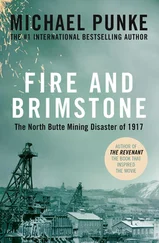George Bryce - The Siege and Conquest of the North Pole
Здесь есть возможность читать онлайн «George Bryce - The Siege and Conquest of the North Pole» — ознакомительный отрывок электронной книги совершенно бесплатно, а после прочтения отрывка купить полную версию. В некоторых случаях можно слушать аудио, скачать через торрент в формате fb2 и присутствует краткое содержание. Жанр: foreign_antique, foreign_prose, на английском языке. Описание произведения, (предисловие) а так же отзывы посетителей доступны на портале библиотеки ЛибКат.
- Название:The Siege and Conquest of the North Pole
- Автор:
- Жанр:
- Год:неизвестен
- ISBN:нет данных
- Рейтинг книги:5 / 5. Голосов: 1
-
Избранное:Добавить в избранное
- Отзывы:
-
Ваша оценка:
- 100
- 1
- 2
- 3
- 4
- 5
The Siege and Conquest of the North Pole: краткое содержание, описание и аннотация
Предлагаем к чтению аннотацию, описание, краткое содержание или предисловие (зависит от того, что написал сам автор книги «The Siege and Conquest of the North Pole»). Если вы не нашли необходимую информацию о книге — напишите в комментариях, мы постараемся отыскать её.
The Siege and Conquest of the North Pole — читать онлайн ознакомительный отрывок
Ниже представлен текст книги, разбитый по страницам. Система сохранения места последней прочитанной страницы, позволяет с удобством читать онлайн бесплатно книгу «The Siege and Conquest of the North Pole», без необходимости каждый раз заново искать на чём Вы остановились. Поставьте закладку, и сможете в любой момент перейти на страницу, на которой закончили чтение.
Интервал:
Закладка:
On the 7th of December, Bonsall and Petersen, two of the party that left Kane on 28th August, returned to the brig, and the remainder of the party arrived on the 12th. They had gone through a terrible trial. When they arrived at the brig, the thermometer was at −50°; they were covered with rime and snow, and were fainting with hunger. They had journeyed 350 miles, and their last run from the bay near Etah, some 70 miles in a straight line, was through the hummocks at this appalling temperature. For more than two months they had lived on frozen seal and walrus-meat.
Food for the whole party became more and more scarce, and Dr. Kane determined to make a journey to Etah in order to obtain assistance from the Esquimaux, if possible. His views on sledging at this period are interesting: “My plans for sledging, simple as I once thought them, and simple certainly as compared with those of the English parties, have completely changed. Give me an 8 lb. reindeer-fur bag to sleep in, an Esquimaux lamp with a lump of moss, a sheet iron snow-melter or a copper soup-pot, with a tin cylinder to slip over it and defend it from the wind, a good pièce de résistance of raw walrus-beef; and I want nothing more for a long journey, if the thermometer will keep itself as high as minus 30°. Give me a bear-skin bag and coffee to boot; and with the clothes on my back I am ready for minus 60°, – but no wind.
“The programme runs after this fashion. Keep the blood in motion, without loitering on the march: and for the halt, raise a snow-house; or if the snow lie scant or impracticable, ensconce yourself in a burrow or under the hospitable lee of an inclined hummock-slab. The outside fat of your walrus sustains your little moss fire: its frozen slices give you bread, its frozen blubber gives you butter, its scrag ends make the soup. The snow supplies you with water; and when you are ambitious of coffee there is a bagful stowed away in your boot. Spread out your bear-bag, your only heavy movable; stuff your reindeer-bag inside, hang your boots up outside, take a blade of bone, and scrape off all the ice from your furs. Now crawl in, the whole party of you, feet foremost; draw the top of your dormitory close, heading to leeward. Fancy yourself in Sybaris; and, if you are only tired enough, you may sleep – like St. Lawrence on his grid-iron, or even a trifle better.”
On 17th January 1855, Dr. Kane wrote: “There is no evading it any longer: it has been evident for the past ten days that the present state of things cannot last. We require meat, and cannot get along without it. Our sick have finished the bear’s head, and are now eating the condemned abscessed liver of the animal, including some intestines that were not given to the dogs. We have about three days’ allowance; thin chips of raw frozen meat, not exceeding 4 oz. in weight for each man per day.”
On 22nd January, Kane and Hans left the brig to make an attempt to reach Etah. Unfortunately, a severe snowstorm came on soon after they reached a half-way hut. After being storm-bound two days, they attempted to push on, but found that the snow had accumulated to such an extent that it was impossible to complete the journey. They returned to the hut, and next day tried the land-ice, but in vain. Kane, however, climbed a hill from which he discovered a trough through the hummock-ridges, and level plains of ice stretching to the south. Had the dogs not been disabled and the moonlight waning, they could now have made the journey; but as it was, they were forced to return to the brig, which they reached thoroughly exhausted.
Petersen and Hans started on 3rd February to make another attempt. They returned on the 5th, having found that the snow had become impassable. At this time only five of the party were able to work, and even these were not free from scurvy. On 28th February Kane had to report: “The scurvy is steadily gaining on us. I do my best to sustain the more desperate cases; but as fast as I partially build up one, another is stricken down. The disease is perhaps less malignant than it was, but it is more diffused throughout our party. Except William Morton, who is disabled by a frozen heel, not one of our eighteen is exempt. Of the six workers of our party, as I counted them a month ago, two are unable to do outdoor work, and the remaining four divide the duties of the ship among them. Hans musters his remaining energies to conduct the hunt. Petersen is his disheartened, moping assistant. The other two, Bonsall and myself, have all the daily offices of household and hospital. We chop five large sacks of ice, cut 6 fathoms of 8-inch hawser into junks of a foot each, serve out the meat when we have it, hack at the molasses, and hew out with crowbar and axe the pork and dried apples, pass up the foul slop and cleansings of our dormitory; and in a word, cook, scullionise , and attend the sick. Added to this, for five nights running I have kept watch from 8 p.m. to 4 a.m., catching cat-naps as I could in the day without changing my clothes, but carefully waking every hour to note thermometers.”
Such was the stuff of which Dr. Kane was made!
On the 6th of March, Kane made the desperate venture of sending Hans, the only effective huntsman, on a sledge-journey to find the Esquimaux of Etah. He took with him the two surviving dogs in the lightest sledge. He returned on the 10th, having made the journey successfully. He found that the plight of the Esquimaux, so far as food was concerned, had been worse than those at the brig. Hans, however, assisted in a walrus-hunt, and with his rifle succeeded in killing a walrus. With his share of the meat he returned to the brig, where he was heartily welcomed.
By the end of March, Kane was able to hope that the scurvy was abating. In his journal on 3rd April, he gives a description of the daily routine: —
“At 7.30 call ‘all hands’; which means that one of the well trio wakes the other two. This order is obeyed slowly. The commander confesses for himself that the breakfast is well-nigh upon table before he gets his stiff ankles to the floor. Looking around, he sees the usual mosaic of sleepers as ingeniously dovetailed and crowded together as the campers-out in a buffalo-bag. He winds his way through them, and, as he does so, some stereotyped remarks are interchanged. ‘Thomas!’ – our ex-cook, now side by side with the first officer of the expedition, – ‘Thomas, turn out!’ ‘Eugh-ng, sir.’ ‘Turn out; get up.’ ‘Ys-sir;’ (sits bolt upright and rubs his eyes.) ‘How d’you feel, Mr. Ohlsen?’ ‘Better, sir.’ ‘How’ve you passed the night, Mr. Brooks?’ ‘Middlin’, sir.’ And, after a diversified series of spavined efforts, the mystical number forms its triangle at the table.
“It still stands in its simple dignity, an unclothed platform of boards, with a pile of plates in the centre. Near these is a virtuoso collection of cups grouped in a tumulus or cairn, commencing philosophically at the base with heavy stoneware, and ending with battered tin: the absolute pinnacle a debased dredging-box, which makes a bad goblet, being unpleasantly sharp at its rim. At one end of this table, partly hid by the beer-barrel, stands Petersen; at the side, Bonsall; and a limejuice cask opposite marks my seat. We are all standing: a momentary hush is made among the sick; and the daily prayer comes with one heart: – ‘Accept our gratitude, and restore us to our homes.’
“The act of devotion over, we sit down, and look – not at the breakfast, but at each other.
“It may sound absurd to those who cannot understand the narrowing interest which we three availables feel in our continued mutual ability, for me to say that we spend the first five minutes in a detail of symptoms. The state of each man’s gums and shins and ankles, his elbows, loins, and kidneys, is canvassed minutely and compared with his yesterday’s report: the recital might edify a specialist who was anxious to register the Protean indications of scurvy. It is sometimes ludicrous, but always sad.
Читать дальшеИнтервал:
Закладка:
Похожие книги на «The Siege and Conquest of the North Pole»
Представляем Вашему вниманию похожие книги на «The Siege and Conquest of the North Pole» списком для выбора. Мы отобрали схожую по названию и смыслу литературу в надежде предоставить читателям больше вариантов отыскать новые, интересные, ещё непрочитанные произведения.
Обсуждение, отзывы о книге «The Siege and Conquest of the North Pole» и просто собственные мнения читателей. Оставьте ваши комментарии, напишите, что Вы думаете о произведении, его смысле или главных героях. Укажите что конкретно понравилось, а что нет, и почему Вы так считаете.












